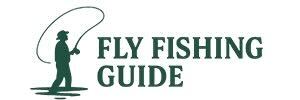Trout Lines in the Wasatch: Guided Fly Fishing in Park City
Cold tailwater, wild trout, and a guide who reads the current like a map.
Morning slides into the valley like a quiet agreement. The Wasatch still holds its cool overnight breath, and the river—nursed by a tailwater release—moves with a measured pulse, as if counting down to the first hatch. You step in and the current tests your balance, nudging knees, asking for attention. A guide beside you watches the seam where fast water kisses slow, then nods to the slot that looks like nothing and everything at once. “There,” they say. The river approves.
Trail Wisdom
Check Flows Before You Go
Tailwaters are stable, but releases change—verify USGS gauges for the Provo or Weber the morning of your trip.
Dress for Cold Water
Even in summer, tailwater temps are cool—layer under breathable waders and pack a warm top for shade and wind.
Stay Low, Cast Soft
Clear water makes trout wary; crouch near the bank, lengthen your leader, and land the line like a whisper.
Pinch Barbs and Keep ’Em Wet
Barbless hooks speed releases and reduce harm; handle fish with wet hands and minimize air exposure.
Local Knowledge
Hidden Gems
- •Secluded side channels that come alive during evening caddis flights
- •Riffle-to-run transitions below tailwater releases that hold fish all day
Wildlife
Moose, Osprey
Conservation Note
Practice Clean, Drain, Dry protocols to prevent aquatic invasive species; avoid stepping on spawning redds in fall and pinch barbs to reduce fish stress.
Park City shifted from a 19th-century silver-mining hub to a modern mountain town and host city for the 2002 Winter Olympics, expanding outdoor pursuits beyond snow.
Seasonal Guide
spring
Best for: Blue-winged olive hatches, Consistent nymphing
Challenges: Cold mornings, Variable runoff levels
Expect BWO hatches on cloudy days and rising flows as snowmelt ramps up; guides target softer edges and tailouts.
summer
Best for: Evening caddis, Terrestrial action
Challenges: Midday heat, Afternoon thunderstorms
Fish early and late for the best topwater; midday nymphing remains steady, with quick storm cells possible.
fall
Best for: Aggressive brown trout, Clear, stable flows
Challenges: Low, spooky water, Respecting spawning redds
Crisp days and active fish; watch for redds in gravel and give spawning areas a wide berth.
winter
Best for: Midge hatches, Quiet rivers
Challenges: Icy banks, Limited daylight
Short windows of activity reward precise presentations; dress warm and plan for slower, methodical fishing.
Photographer's Notes
What to Bring
5-weight Fly Rod with Floating LineEssential
A versatile setup for Park City’s tailwaters, handling nymphs, dries, and light streamers.
Breathable Waders with LayeringEssential
Cold tailwater temps warrant waders year-round; add insulating layers in cooler months.
Rubber-Soled Wading Boots with Studs + Wading StaffEssential
Slick cobbles demand traction and stability for safer wading.
Polarized SunglassesEssential
Cuts glare to spot fish and protect eyes from errant hooks.
Common Questions
Do I need a Utah fishing license?
Yes. A valid Utah fishing license is required for anyone 12 and older; purchase online or at local outfitters before the trip.
What’s included with the guided trip?
Typically rods, reels, terminal tackle, and flies are provided; waders/boots may be available—confirm when booking.
Is this suitable for beginners?
Absolutely. Guides tailor instruction to your experience level and focus on fundamentals like casting, mending, and fish handling.
Will we fish from shore or a boat?
Most Park City outings are walk-and-wade on the Provo or Weber; boat options may be used based on conditions and availability.
What happens in bad weather?
Trips run in light rain and snow, but lightning or unsafe flows may prompt rescheduling for safety.
Can kids participate?
Yes, with parental supervision. Discuss age, size, and comfort with cold water in advance to ensure the right gear and river choice.
What to Pack
Utah fishing license (required to legally fish); quick-dry base layers (tailwaters are cold year-round); water and high-calorie snacks (you’ll wade for hours); sun protection (hat, sunscreen, buff) for high-altitude glare.
Did You Know
The Provo River is a designated Blue Ribbon fishery, and its tailwater below Jordanelle Dam provides cold, stable flows that support consistent trout populations year-round.
Quick Travel Tips
Fly into Salt Lake City International (SLC) and plan a 40–50 minute drive to Park City; buy your Utah license online in advance; weekday mornings see fewer anglers than weekends; thunderstorms can roll in fast—pack a light rain shell even in July.
Local Flavor
Wrap your day with a pour at High West Saloon just off Main Street or a local pint at Wasatch Brewery. For hearty post-river fuel, grab a burger at No Name Saloon or tacos at El Chubasco. If you’ve got time, stroll galleries on Main—river-worn hands look right at home among the frames.
Logistics Snapshot
Closest airport: Salt Lake City International (SLC). Typical meet-up: Park City, with 20–45 min drives to the Provo or Weber. Cell service: patchy in canyons. Permits: Utah fishing license required; most gear provided by your guide—confirm waders/boots.
Sustainability Note
These rivers support wild trout thanks to cold tailwater releases—pack out tippet and trash, avoid trampling streamside vegetation, and decontaminate gear to stop invasive species spread.
Continue Reading

Reeling in the Coast Range: A Half-Day Fishing Escape from Whistler Village
Short drives from Whistler Village put you on fast, productive water: this three-hour guided fishing trip is an accessible, efficient way to learn local techniques and chase rainbow and cutthroat trout in the Sea-to-Sky corridor.
Whistler, British Columbia

Streamside Lessons: A Half-Day Walk & Wade Trout Trip in Cherokee
Learn to read pocket water, cast with purpose, and feel the pull of wild trout on a private, four-hour guided outing in western North Carolina. This half-day walk-and-wade trip is ideal for beginners and seasoned anglers who want concentrated time on some of the region’s best small rivers.
Cherokee, North Carolina

